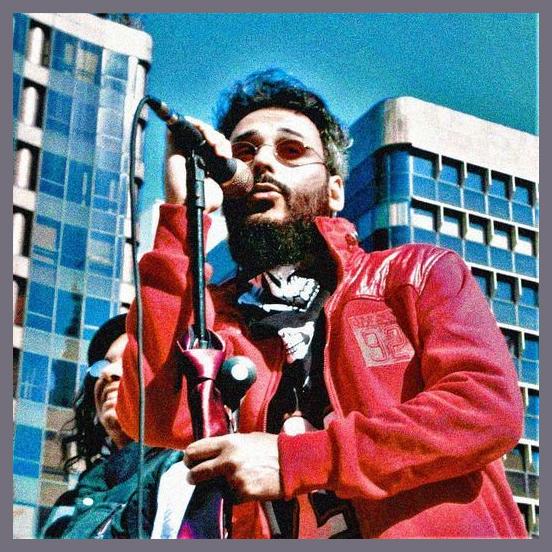 Zona 21
Zona 21
Zona 21: The Machines behind the Villains
Origins and Challenges
Zona 21 emerged from the vibrant urban landscape of São Paulo, Brazil, in the mid-2000s. Led by vocalist and rapper MC Cebola, the group defied the norms of conventional Brazilian hip-hop, incorporating elements of rock, reggae, and electronics into their explosive sound. Their early years were marked by financial struggles and limited recognition, but their unwavering determination propelled them forward.
Controversies and Success
In 2012, Zona 21 released their breakthrough single, "Máquina De Fazer Vilão." The song ignited a firestorm of controversy, with its lyrics criticizing the systemic violence and inequality prevalent in Brazilian society. The band faced accusations of inciting hatred, but their unflinching message resonated deeply with marginalized communities and solidified their status as a voice for the voiceless.
Discography
Zona 21's discography boasts a diverse array of albums and singles that showcase their musical versatility and social consciousness. Their debut album, "Zona de Perigo" (2014), established their signature sound, blending heavy guitar riffs with energetic rap vocals. Subsequent releases such as "R.A.P." (2017) and "Tudo No Seu Lugar" (2020) further cemented their reputation as one of Brazil's most influential hip-hop groups.
Members
Zona 21's core lineup consists of:
* MC Cebola (vocals, rap)
* DJ Hum (turntables, beats)
* Bruno (guitar)
* Rodrigo (bass)
* Fabriccio (drums)
Each member brings their unique skills and perspectives to the collective, creating a cohesive and electrifying musical experience.
Legacy and Impact
Zona 21 has emerged as a beacon of social change in Brazil. Their music empowers marginalized communities, challenges societal norms, and sparks dialogue about pressing issues. Through their raw lyrics, powerful performances, and unwavering activism, they have become a symbol of resistance and hope. As their influence continues to grow, Zona 21 remains a driving force in the evolution of Brazilian hip-hop and the fight for a more just and equitable society.
Origins and Challenges
Zona 21 emerged from the vibrant urban landscape of São Paulo, Brazil, in the mid-2000s. Led by vocalist and rapper MC Cebola, the group defied the norms of conventional Brazilian hip-hop, incorporating elements of rock, reggae, and electronics into their explosive sound. Their early years were marked by financial struggles and limited recognition, but their unwavering determination propelled them forward.
Controversies and Success
In 2012, Zona 21 released their breakthrough single, "Máquina De Fazer Vilão." The song ignited a firestorm of controversy, with its lyrics criticizing the systemic violence and inequality prevalent in Brazilian society. The band faced accusations of inciting hatred, but their unflinching message resonated deeply with marginalized communities and solidified their status as a voice for the voiceless.
Discography
Zona 21's discography boasts a diverse array of albums and singles that showcase their musical versatility and social consciousness. Their debut album, "Zona de Perigo" (2014), established their signature sound, blending heavy guitar riffs with energetic rap vocals. Subsequent releases such as "R.A.P." (2017) and "Tudo No Seu Lugar" (2020) further cemented their reputation as one of Brazil's most influential hip-hop groups.
Members
Zona 21's core lineup consists of:
* MC Cebola (vocals, rap)
* DJ Hum (turntables, beats)
* Bruno (guitar)
* Rodrigo (bass)
* Fabriccio (drums)
Each member brings their unique skills and perspectives to the collective, creating a cohesive and electrifying musical experience.
Legacy and Impact
Zona 21 has emerged as a beacon of social change in Brazil. Their music empowers marginalized communities, challenges societal norms, and sparks dialogue about pressing issues. Through their raw lyrics, powerful performances, and unwavering activism, they have become a symbol of resistance and hope. As their influence continues to grow, Zona 21 remains a driving force in the evolution of Brazilian hip-hop and the fight for a more just and equitable society.